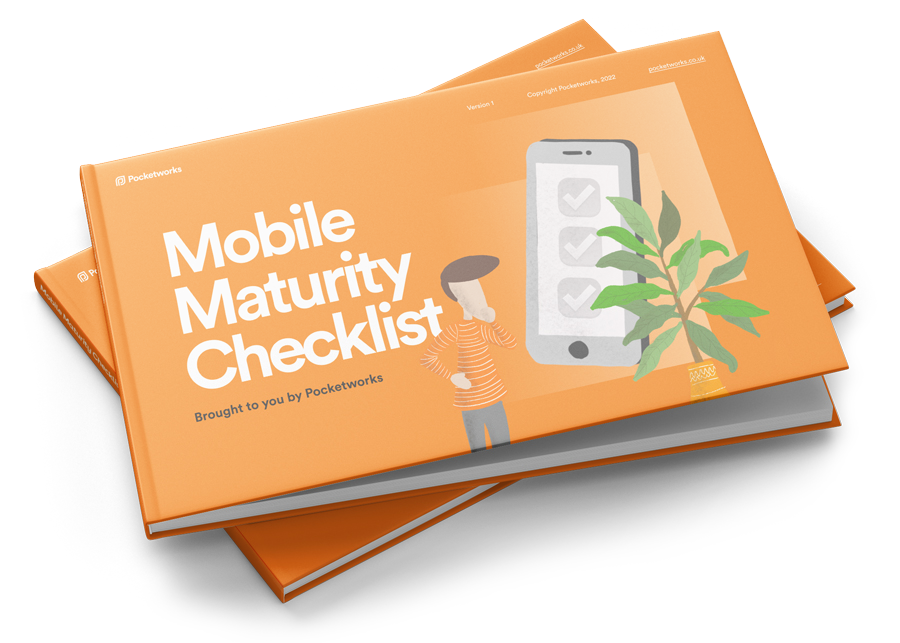A lot of businesses that think about building an app want to know what kind of investment is needed. Most people will say “it depends”, and they are right. But, that’s not very useful to you now, is it?
I know you're here for a quick answer, so let me throw out a few ideas based on what I've seen in 2021. Then I'll talk about how you should figure out what you should spend on an app.
Some examples of what it costs to develop an app
Here are some real-world examples that I've seen, both here at Pocketworks and with other companies. I'm going to swap out some details, just so as not to break NDA!
Example 1 - An established national business with a fleet of lorry drivers
I worked with another company that had 200 lorries on the road, where the drivers spent their day moving stuff around. They worked out that, if they managed the work better, they could do more of it. And they could get more done with fewer people. Over 3 years this could create a net increase of £5m. So, it made sense to conservatively invest £200K-£500K to achieve these gains.
Example 2 - A startup that is self-funded
I know some startup founders that recently got three quotes to build their social media platform. They had estimates from £250k-£400k to develop the technology. The problem is, they only want to spend £120k because they are self-funding, so they need to make it smaller and prove the concept. This is usually possible if you reduce the scope.
Example 3 - A startup with private equity
I met a founder who had pulled together an impressive board of advisors and was well backed. His idea was world-changing and was big, and he'd seen estimates from £1.5m to £3.5m . The more expensive estimates included more flexibility, support and a shorter time to market. So if you want these things, then expect to pay more.
Example 4 - An established business with 400 remote workers
I've worked with a few companies looking to improve the employee experience, so people can get more done in a less frustrating way. One of these solutions has started out in the £ 50K region, and another in the £100K area. It's usually possible to start small, but bear in mind there will be extra costs as you need to update the app to reflect new phones and operating systems.
How are these costs justified?
The above examples are all based on UK businesses speaking to UK app developers .
The teams working on the apps will typically have the expertise of 5-10 people . Researchers, designers, mobile developers, web developers, product managers, testers and directors. Running a 10 man team in the UK could easily cost £1m a year if that team is experienced. So you can see, it's not the cheapest sport.
Where the apps are being developed for Android and iOS , you have higher costs. Similarly, if your solution means having a website, or a watch app or a TV app, expect to make more investment.
Many people don't know exactly what the optimal solution is. An agile approach should reveal what's needed as the project progresses, based on feedback and collaboration. Therefore, you need a good dose of wiggle room in the estimate with this approach. You literally cannot estimate when you don't know quite what you're doing yet.
What should you spend?
Here's one technique below to work out how much your app will cost.
Let’s go back to the original answer; "it depends" and explore why this is. As you can imagine, there are a lot of factors that influence the cost of an app. How complicated is it, what scope of features are needed, the location and size of the development company, the skills they bring, the technologies used, the list go on.
For example, Uber runs a team of 2,000 engineers and probably spends at least £14m a year on its mobile app, because the success and functionality of its app are intrinsic to its business. On the other end of the scale, you can get a lot done with £100k, and sometimes less.
So the scale of your need can be directly linked to the cost.
The best way of working out your app investment is to look at your business case and opportunity size over two years, and then budget 10% to 20% of that. For example, if your app will increase your bookings by £10m over two years, a sensible investment would be £0.5m – £1m.
You won’t have to spend that all at once. It’s best to think of an app as a journey. You create something, learn from customer feedback, and then refine it and tune it. This is how successful apps are made and it’s why I’d recommend looking at an app as a two-year investment.
If you’re not sure what the business opportunity is, some app companies will be able to offer consultancy to build a business case with you. It takes a little work but can often be done in days or weeks if you have the right data. They might also be able to help you see the business opportunities you’ve not seen before.
Once you know your business case, direction and budget, the next step is to work with an app developer and define a solution that gets maximum results within that budget. You can de-risk the project by allocating 25% budget for the first three-six months and working on the most important things first. So, if your two-year app investment is £500,000, then you could budget £125k for the first milestone.
In summary, the size and scale of your app, and how much ongoing refinement and management it will need, will often dictate the price. It’s wise to develop a business case to understand the return on investment and minimise the risk by working with an experienced app development specialist, as well as spreading the cost over a number of milestones.

